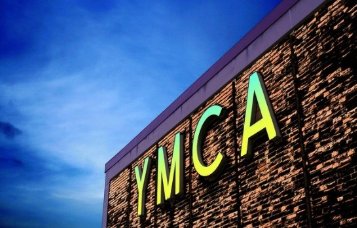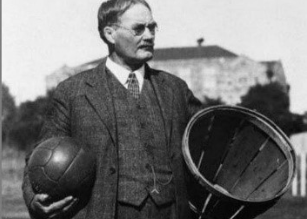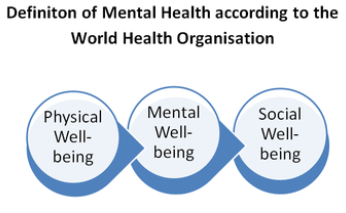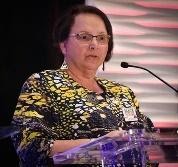
By Dr. Helen Horvath
July 19, 2020 (San Diego’s East County) -- In this ongoing series about impacts of COVID-19 to our families and vital community nonprofit services, ECM explores the pandemic’s effects on operations at the YMCA of East County and San Diego County through an exclusive interview with Courtney Pendleton, Association Director of Public Relations and Communications, San Diego YMCA.
The YMCA of San Diego County has served our region for 138 years with a dedication to strengthening our communities through physical activities that feed the mind, body, and spirit of our communities. The Y, as most people affectionately call the YMCA, has become one of the most diverse organizations serving our area. Through the years, for many, the 18 YMCAs in San Diego County have become places of diversity and inclusion to meet up, exercise, socialize, and meet new and old friends while potentially learning new skills.
But shutdowns of facilities, programs and fundraising events have posed daunting challenges for the YMCA to work out.
NOTE: Although the government has again closed all fitness centers, all YMCA pools in East County remain OPEN. To make a reservation for an individual lap swim lane, please contact your local YMCA (click here). Membership or a daily swim fee will apply.
In the beginning…
As a young child growing up in rural Pennsylvania, this author often wondered what the YMCA stood for and how did the organization begin? Children in the rural Pennsylvania area would walk or ride their bikes to the YMCA to exercise, visit, and find community. The ongoing participation in the YMCA experienced by this writer has been shared by many others during the 138 years that the YMCA has been serving San Diego County.
The Young Men’s Christian Association (YMCA) was founded in London, England in 1844 by George Williams, a London draper, as a social Christian movement and association during the industrial revolution. This was a period in global history where rural men and families migrated to the city for a better life. George Williams was just 22 when he formed the Young Men’s Christian Association (YMCA) as a place for Bible studies and a community for young men seeking refuge from the bleak lifestyle of tenement housing and dangerous community influences.
Headquartered in Geneva, Switzerland and founded on Christian principles that included youth and social/community development, the YMCA has blossomed into a network now located in 120 countries with more than 64 million members globally. Each YMCA “association” in the United States is a 501(C)(3) non-profit and is affiliated as part of an Area Alliance by nation or geographic region.
 In the United States many years later, a retired sea captained named Thomas V. Sullivan was working as a marine missionary when he noticed a similar need to create community and a safe “home away from home” for sailors and merchants. Sullivan was so inspired by the stories of the YMCA in England, on December 29, 1851, he led the formation of the first YMCA at the Old South Church in Boston.
In the United States many years later, a retired sea captained named Thomas V. Sullivan was working as a marine missionary when he noticed a similar need to create community and a safe “home away from home” for sailors and merchants. Sullivan was so inspired by the stories of the YMCA in England, on December 29, 1851, he led the formation of the first YMCA at the Old South Church in Boston.
The sport of basketball was invented by James Naismith in 1891 while studying at the YMCA International Training School in Springfield, Massachusetts. Volleyball was also a sport developed by a member of the YMCA of Holyoke, Massachusetts so that older YMCA members could participate in a less strenuous physical activity. Both sports are now ingrained into the fiber of American society through professional sports, education, and community recreation.
COVID-19 and the impact to YMCA corporate operations
During the period, March-June 2020, The San Diego and East County YMCA were required to close their 18 branches, fitness centers, sports complexes, pool, and programs such as Child Watch that had been a part of the family membership package. Child Watch provided onsite childcare while parents worked out. Many of the programs and services required that the YMCA rapidly change or modify its business model of operations. What was a face to face engaging operation has turned into a primarily online business model during the COVID-19 pandemic. These programs and services online include online fitness classes, social learning programs such as lectures with Francine Maxwell, NAACP, and mindfulness programs.
 During the pandemic, many of these programs and services are free to the public (link).
During the pandemic, many of these programs and services are free to the public (link).
According to Ms. Pendleton, “All YMCA branches throughout San Diego County were entirely shut down during this timeframe – so, in essence, every fiber of the Y was impacted. This affected all of our programs, services, and facilities. Our social services – YMCA Childcare Resource Service and YMCA Youth and Family Services, were our main two departments who continued to operate to support the community.”
When discussing the mission and priorities of the YMCA in East County and the region, Pendleton emphasized, “Pre-COVID, association-wide we were working towards Vision 2025. Largely, this vision was about serving more people in an equal way all throughout San Diego County and continuing to do what the YMCA does best – serve its community and fill in any gaps.”
As a result of COVID-19, the YMCA had to make hard decisions regarding the operations of the 18 branches in San Diego County. Pendleton indicated that the YMCA lost members during the March-June 2020. “We certainly did see some members have to cancel their membership with the Y during that time, but the percentage was quite low at each branch. We were very encouraged by the support we received from our members who stayed with us. Many members continued to pay their dues during the closure and these were considered donors for us during that time. Some members simply had to place their membership on hold.”
In addition, the YMCA used a furlough or temporary hold of employment for staff members. This permits the YMCA to offer the employee their position back once the YMCA either partially or fully opens. According to JDSUPRA authors James McDonald, Jr. and Fisher Phillips (attorneys), when “furloughed many employers continue the insurance benefits…while making eligible the employee for unemployment.” The YMCA has done just this. The potential cost of the furlough includes the requirement to pay accrued vacation or PTO according to California Labor Commission rules for 18 branches and corporate offices can be potentially staggering to comply with labor laws.
Ms. Pendleton stated “We were blessed to be in a position to pay all staff in full for the first two weeks we initially believed we were to be closed down (last two weeks of March). This alone costs our organization $3.5 million for a short two-week period. While our organization could not sustain that, we were able to provide benefits for those eligible while they were furloughed (April-July 2020).”
She went on to say, “Unfortunately, the YMCA is just as vulnerable as any other nonprofit or business. To secure the future of the Y in these unprecedented times, very difficult decisions continue to have to be made. The decision to voluntarily close our branches back in March was hard, but what is even more difficult are the decisions we have had to make around our staff team. They are the heartbeat of our mission, and the driver for how that mission is presented to our members and program participants.“
Ms. Pendleton further expanded her statement “Furloughed employees (will be rehired) as an ongoing process throughout our phased reopening approach. We were able to bring back the necessary staff to help us reopen and serve members – there was no need to hire from outside the organization. However, there are always job openings at the Y. Those can always be found here for the public.”
Yet the reality of the financial picture of the YMCA as an organization is one that has been hard hit by employment regulations surrounding unemployment, rehiring, payment of benefits, and loss of paid membership. Employment factors may include final checks with personal time off and leave according to California Employment Commissioner unemployment rules and regulations.
Now that the YMCA has again had to close, additional costs will be required for those employees who are again furloughed due to government mandates. The second closure has halted many of the ways that the YMCA earns money to sustain their operations.
The YMCA continues to seek sources of revenue. Supervisor Nathan Fletcher’s office and the San Diego Foundation worked to help the YMCA provide more childcare opportunities for parents during COVID-19. Pendleton happily announced an award of a “$1 million grant from the San Diego Foundation’s Covid-19 Community Response Fund to support summer day camp, which opened on June 22 that included Cameron YMCA in Santee as the only East County location providing summer camp. Our YMCA has submitted for other funding, but we do not have all details at this time.” Yet, $1 million dollars is not sufficient to entirely operate this large community-based organization for 2020 and beyond.
COVID-19 and the impact to community services
The YMCA of San Diego County, according to Pendleton, “has seen our share of challenges over the last century of service. This pandemic crisis has challenged and impacted all of us in new ways. Unfortunately, the YMCA is just as vulnerable as any other nonprofit or business.” The YMCA, as with other businesses, has had to quickly implement new strategies to continue services during periods of government mandated closures, she adds. The physical doors may have been closed from March until July; yet, the YMCA continued to pivot its operations to meet the needs of the YMCA family and greater San Diego community.
Pendleton noted that “while you cannot physically come into the YMCA to work out (and take classes), you can access workout classes and activities online at ymcasd.org.” She added, “During times like this, we might make time to maintain our physical health, but we neglect to focus on our mental health.”
 As part of the YMCA’s dedication to families and youth, Pendleton emphasized the pivot in services that includes mental health care. “Our Youth & Family Services team has pivoted quickly to address mental health and essential needs for homeless youth and families. The Y is here (for the community) with a team of mental health professionals who can provide fully virtual, affordable (mental health and other) support for anyone in our community. We have experts for all ages ready and waiting to log on and work with you and your family through virtual appointments.” As part of the YMCA’s dedication to the San Diego Community, she emphasized that the YMCA continued to add more activities for children, families, and older adults. Members and non-members are able to access free resources such as “Be Well” mindfulness webinars and other free community programs to include exercise courses.
As part of the YMCA’s dedication to families and youth, Pendleton emphasized the pivot in services that includes mental health care. “Our Youth & Family Services team has pivoted quickly to address mental health and essential needs for homeless youth and families. The Y is here (for the community) with a team of mental health professionals who can provide fully virtual, affordable (mental health and other) support for anyone in our community. We have experts for all ages ready and waiting to log on and work with you and your family through virtual appointments.” As part of the YMCA’s dedication to the San Diego Community, she emphasized that the YMCA continued to add more activities for children, families, and older adults. Members and non-members are able to access free resources such as “Be Well” mindfulness webinars and other free community programs to include exercise courses.
Mental health is directly tied to the physical well- being of community members. According to the Malaysian Journal of Medical Science, life events, stress and illness has a complex relationship with vulnerability and development of six leading causes of death in the United States that include coronary heart disease and respiratory disorders. Mental health therapy is a form of self-care that can address stress, anxiety, and a myriad of other life events or mental health disorders.
The YMCA’s mental health and therapy programs are unique and affordable. The programs align well with the overall mission of the YMCA designed to address both mental health disorders and life events that create stress, anxiety, and illness. This mind-body or mindfulness approach uses physical wellness to reduce mental health symptoms to ultimately create social well-being in our communities.
Pendleton stated “(The mental health services) do not require membership and the YMCA accepts referrals through partnerships with healthcare providers.” This program is managed by the “YMCA Youth & Family Services has been operating in San Diego County since 1970.” She added that the YMCA offers virtual therapy and counseling with qualified mental health counselors. “The virtual component was a critical pivot once COVID hit. Our team made this happen quickly to be able to continue to support clients.”
The YMCA of San Diego was able to continue its mission of community service through a partnership with the Red Cross. Pendleton said the YMCA’s Red Cross partnership led to the YMCA “hosting more than a dozen blood drives in our facilities during the closure (April-June). These YMCA drives alone potentially saved nearly 1,000 lives. This included a drive at the McGrath Y.”
Childcare Services
 As part of this mindfulness approach to community wellbeing, the YMCA has made pivotal changes in the services for children and families. The YMCA is still providing transitional living, family preservation and youth and adult developmental services along with other homeless family services.
As part of this mindfulness approach to community wellbeing, the YMCA has made pivotal changes in the services for children and families. The YMCA is still providing transitional living, family preservation and youth and adult developmental services along with other homeless family services.
The key factor in the YMCA’s services and programs for families includes a Childcare Resource Services (CRS) team. Pendleton indicated that the team “is providing enhanced childcare referrals to all local families seeking care. Our team can connect you to an available licensed childcare in the county. Just call: 1-800-481-2151 or visit the website. We are also working with government and healthcare leaders to help ensure childcare access is available, especially for our essential health care workers and first responders…the YMCA has seen an increased need for childcare referrals during the COVID-19 pandemic.”
ECM asked Pendleton if the YMCA required specific standards of the childcare providers such as masks, latex gloves, or increased sanitation/disinfecting as a result of the COVID-19 pandemic. She stated, “These are not YMCA CRS requirements, but rather guidelines and protocols by federal/state/local officials. The YMCA merely provides guidance/information as a resource to help ensure childcare centers are following these requirements. Additionally, YMCA CRS is one of two agencies in San Diego County who manage childcare subsidies for families who need assistance with paying for childcare. Lastly, YMCA CRS and other organizations have received funding to be able to provide cleaning supplies and/or funding to childcare providers who need it.”
Note: The YMCA is a member of 2-1-1 San Diego with additional information provided to 2-1-1 San Diego callers regarding YMCA childcare services.
The YMCA unfortunately, due to COVID-19 and the closure of fitness centers, made hard decisions that include closing onsite childcare while members worked out. Prior to COVID-19, members with a family membership were able to drop off children to their Child Watch/Kids Club for two hours of childcare as a drop in services. Pendleton explained that this popular program has hit a snag with the closure of the YMCA fitness centers “This is a drop-in program and unfortunately, we have no way to be able to ensure small, stable groups (to warrant keeping the program open) that is the requirement right now. Unfortunately, the YMCA “will not be reopening Child Watch at this time and do not have an estimated time/date of reopening (for Child Watch due to the fitness centers ongoing closures).”
 Pendleton further explained that the ”Child Watch program closure is the same for all YMCAs throughout San Diego County. It is extremely important to note that this (Child Watch) is quite different than the YMCA Child Resource Services, our Y preschools and our day camp programs. In East County specifically, the Cameron Family Y in Santee is offering summer day camps for childcare. This began on June 22. Preschool programs are not offered at any of our East County locations (currently).”
Pendleton further explained that the ”Child Watch program closure is the same for all YMCAs throughout San Diego County. It is extremely important to note that this (Child Watch) is quite different than the YMCA Child Resource Services, our Y preschools and our day camp programs. In East County specifically, the Cameron Family Y in Santee is offering summer day camps for childcare. This began on June 22. Preschool programs are not offered at any of our East County locations (currently).”
As part of the YMCA’s COVID-19 mission, the YMCA has increase standards to prevent COVID-19. Details about the YMCA’s camp standards can be found here. According to Pendleton, “it is important to note that the YMCA has always received high marks for the cleanliness of our facilities and programs. The health and safety of our youth, members and staff has always been our top priority – and now, only heightened during COVID.”
Funding needed for current operations of San Diego and East County YMCAs
As with any other non-profit, there is a reliance upon fundraising events to partially finance the YMCA’s business operation that includes payroll for employees and programs/services. The YMCA typically has multiple fundraising events each year. This is part of the creation of multiple streams of income that have been slashed by the government mandates to close fitness centers that includes all 18 YMCA branches.
Typical YMCA community fundraisers are currently cancelled. Due to COVID-19, popular fundraising events such as “The Branding” will most likely not occur.
Pendleton sadly stated that hosting the gala event this year is “unlikely, but again, the Y will follow all local and state guidance here.” When asked about potentially moving fundraising events online, she said that this is “to be determined for any of our larger events throughout the County. The YMCA will follow all local and state guidance here. (We will) “determine later this year of the YMCA will have modified fundraising events…It is too early to tell still.”
Despite the second closure of the YMCA in 120 days, the YMCA remains optimistic that the community will continue to support and use services designed to benefit the community. Through free online fitness and well-being courses offered free to the community the mission of the YMCA continues.
The YMCA in East County and overall San Diego County continues to move towards reopening the facilities. Pendleton concluded, “Now more than ever we are fully committed to ensuring a strong and vital future for our YMCAs and the communities we serve. Our Y has been serving the community for the past 138 years - and we want to be able to serve for many more!”
The CEO of San Diego YMCA, Baron Herelin-Doherty, has provided a link to the YMCA’s statement regarding closures and YMCA operations.
The mission is secure and long standing to benefit our communities. Yet, it is important to find methods to financially sustain this long-standi ng institution
ng institution
Exercising your heart is important to sustain this organization.
For more information about the YMCA and opportunities to volunteer, to donate, or simply become involved please contact the YMCA or call the YMCA’s general phone number (858) 292-YMCA (9622) to be directed to your local YMCA.
 Dr. Helen Horvath is a psychologist, organizational development consultant and published author on a variety of psychology and business topics. As a speaker, she has presented at the American Psychological Association Annual Conference, Society of Industrial and Organizational Psychology, and other key professional organizations. She is a former marriage and family therapist and published a relationship book entitled “Put a Period to IT: When Divorce is the Option.” A military veteran, Dr. Horvath has authored articles for East County Magazine focused o how the COVID-19 pandemic is impacting local nonprofit organizations, businesses, and our military healthcare system.
Dr. Helen Horvath is a psychologist, organizational development consultant and published author on a variety of psychology and business topics. As a speaker, she has presented at the American Psychological Association Annual Conference, Society of Industrial and Organizational Psychology, and other key professional organizations. She is a former marriage and family therapist and published a relationship book entitled “Put a Period to IT: When Divorce is the Option.” A military veteran, Dr. Horvath has authored articles for East County Magazine focused o how the COVID-19 pandemic is impacting local nonprofit organizations, businesses, and our military healthcare system.
East County Magazine gratefully acknowledges the Facebook Journalism Project for its COVID-19 Relief Fund grant to support our local news reporting including impacts on vulnerable communities during the COVID-19 pandemic. Learn more: #FacebookJournalismProject and https://www.facebook.com/fbjournalismproject/.
You can donate to support our local journalism efforts during the pandemic at https://www.EastCountyMedia.org/donate.







Recent comments